
by Maina Mwaura & Allen Reynolds, UrbanFaith | Sep 18, 2023 | Commentary, Entertainment, Headline News, Magazine, Relationships |
Marriage is one of the most important institutions in the lives of believers. Unfortunately it is rarely spoken about beyond the headlines of culture wars in the news or as the excuse some believers hide real conversations about sex behind. A lot of believers have a hard time keeping it real about how hard it is to be married. Kevin and Melissa Fredericks, aka KevOnStage and MrsKevOnStage, rarely hold back on keeping it real in conversations.
With over a million followers on social media (which don’t happen for church folks), they are some of the most busy and influential believers on the internet. Their authenticity and creativity have helped them connect with the “churchy” and unchurched alike. But like all married folks they have had challenges in life and in marriage. Their new book Marriage Be Hard is a candid look at their marriage and the lessons they have learned along the way through reflection, therapy, The Love Hour podcast and real work. They hope to help couples everywhere to get past “just making it” in marriage to thriving through their insights.
UrbanFaith sat down with Kevin and Melissa to talk about their journey and their book. The full interview is above, more information on the book is below.
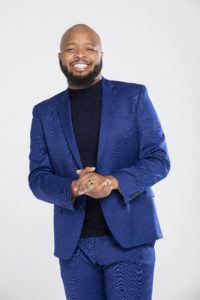

Discover the keys to upholding your vows while staying sane in this hilariously candid guide to relationships, from the husband-and-wife team of comedian Kevin Fredericks and influencer Melissa Fredericks
Growing up, Kevin and Melissa Fredericks were taught endless rules around dating, sex, and marriage, but not a lot about what actually makes a relationship work. When they first got married, they felt alone—like every other couple had perfect chemistry while the two of them struggled. There were conversations that they didn’t know they needed to have, fears that affected how they related to each other, and seasons of change that put their marriage to the test.
Part of their story reads like a Christian fairytale: high school sweethearts, married in college, never sowed any wild oats, with two sons and a thriving marriage. But there’s another side of their story: the night Melissa kicked Kevin out of her car after years of communication problems, the time early in their marriage when Kevin bordered on an emotional affair, the way they’ve used social media and podcasts to conduct a no-holds-barred conversation about forbidden topics like jealousy, divorce, and how to be Christian and sex positive. (Because, as Kevin writes, “Your hormones don’t care about your religious beliefs. Your hormones want you to subscribe to OnlyFans.”)
In Marriage Be Hard, the authors provide a hilarious and fresh master class on what it takes to build and maintain a lasting relationship. Drawing on interviews with experts and nearly two decades of marriage, they argue that• Compatibility is overrated.
• Communication is about way more than simply talking.
• Seeing divorce as an option can actually help your marriage.
• There’s such a thing as healthy jealousy.Real marriage is not automatic. It ain’t no Tesla on the open road. Sometimes it’s a stick shift on a hill in the rain with no windshield wipers. But if you get comfortable visiting—and revisiting—the topics that matter, it can transform your bond with your partner and the life you’re building together.Written for those tired of unrealistic relationship books—and for anyone wondering if they’re the only ones breaking all the rules—Marriage Be Hard is a breath of fresh air and the manual you wish existed after you said “I do.”
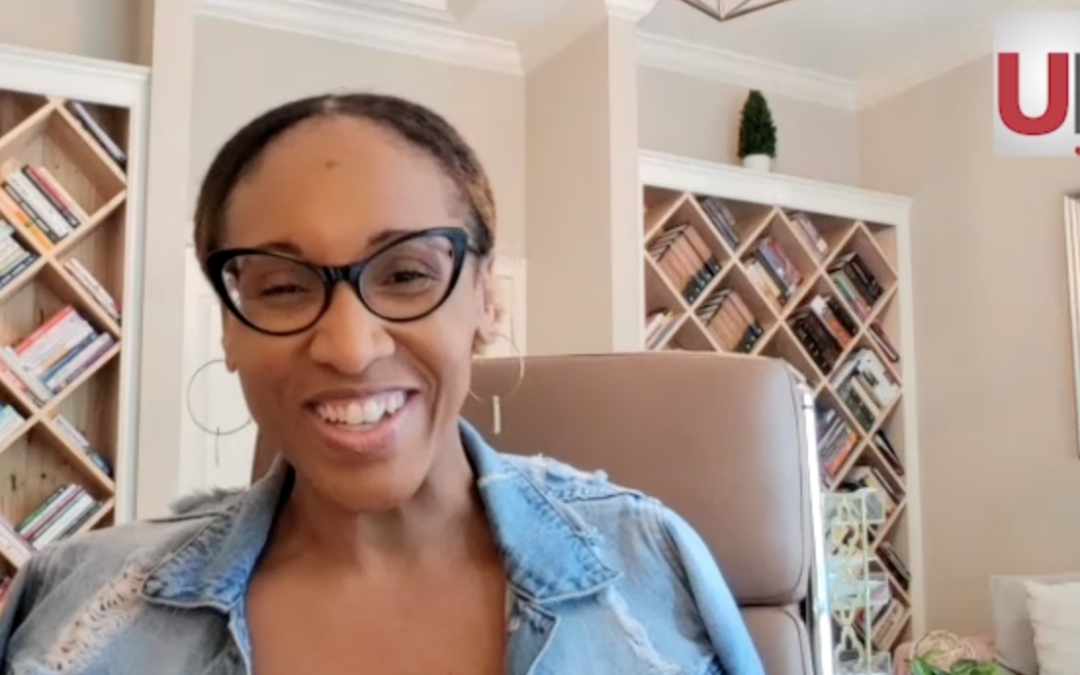
by Maina Mwaura, Urban Faith Contributing Writer | Oct 6, 2022 | Commentary, Headline News |
We have to get past the constant assault of comparison. It keeps us insecure, negative, and disappointed. Author, speaker, and business leader Nona Jones helps us get past the temptation of jealousy and attack of inferiority in her new book Killing Comparison. UrbanFaith sat down with her to discuss the book and her journey to overcoming insecurity and embracing more of her identity in Christ. The full interview is above, more information on the book is below.

Nearly all of us deal with the struggle of comparison and finding ourselves lacking. But there is a way to break free from internal and external messages communicating a lack of self-worth.
It starts with identifying the basis of your urge to compare and ends with securing your identity to the unchanging confidence of God’s love for you.
Nona Jones knows this journey all too well. Throughout her life and in her career–most recently as an executive for the world’s largest social media company–Nona discovered that despite professional success, true confidence can only be achieved by defeating toxic comparison and securing our identity to God’s approval alone.
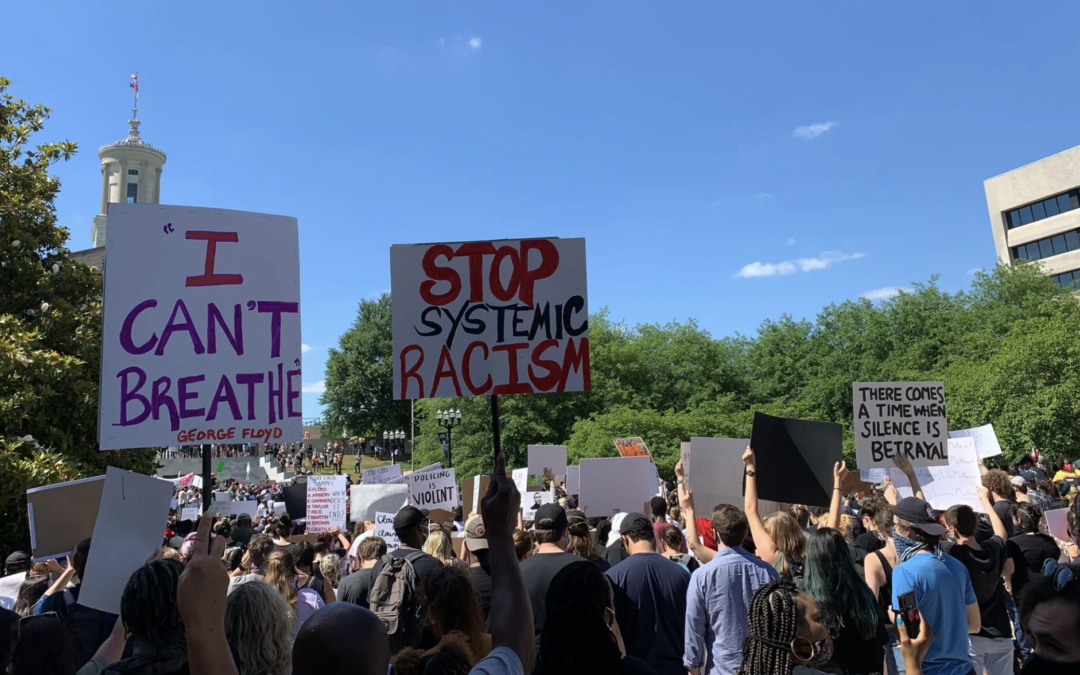
by Maina Mwaura, Urban Faith Contributing Writer | Jul 13, 2022 | Commentary, Headline News, Social Justice |
The unjust killings of African Americans at the hands of law enforcement over the past several years have become all too common news. But New York Times bestselling author Marc Lamont Hill and his co-author Todd Brewster masterfully weave together the strands of social justice uprisings, technology, and social media to talk about how the deaths of black people by police led to viral and physical social justice movements that have reshaped our national discourse.
UrbanFaith contributor Maina Mwaura spent a few moments with Marc Lamont Hill to discuss his the new book Seen & Unseen: Technology, Social Media & the Fight For Racial Justice. The full interview is above. More about the book is below.
 With his signature “clear and courageous” (Cornel West) voice Marc Lamont Hill and New York Times bestselling author Todd Brewster weave four recent pivotal moments in America’s racial divide into their disturbing historical context—starting with the killing of George Floyd—Seen and Unseen reveals the connections between our current news headlines and social media feeds and the country’s long struggle against racism.
With his signature “clear and courageous” (Cornel West) voice Marc Lamont Hill and New York Times bestselling author Todd Brewster weave four recent pivotal moments in America’s racial divide into their disturbing historical context—starting with the killing of George Floyd—Seen and Unseen reveals the connections between our current news headlines and social media feeds and the country’s long struggle against racism.
For most of American history, our media has reinforced and promoted racism. But with the immediacy of modern technology—the ubiquity of smartphones, social media, and the internet—that long history is now in flux. From the teenager who caught George Floyd’s killing on camera to the citizens who held prosecutors accountable for properly investigating the killing of Ahmaud Arbery, ordinary people are now able to reveal injustice in a more immediate way. As broad movements to overhaul policing, housing, and schooling gain new vitality, Seen and Unseen demonstrates that change starts with the raw evidence of those recording history on the front lines.
In the vein of The New Jim Crow and Caste, Seen and Unseen incisively explores what connects our moment to the history of race in America but also what makes today different from the civil rights movements of the past and what it will ultimately take to push social justice forward.
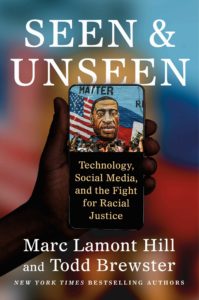

by Anthony Jones II | Sep 19, 2021 | Headline News, Prayers & Devotionals |

I stopped using instagram about two years ago. Then, I stopped using Twitter as my new year’s resolution. On some level, I realized that these apps were consuming my time and making me a less happy, more anxious person in return. As an outsider looking in, the amount of times that someone in my life has had a relative or parent become transformed through social media grows with the days. It seems almost ironic how a technology that was supposed to connect people more effectively has, in some respect, begun tearing them apart. Being connected to others is great, but no one stopped to consider what kind of relationships could be fostered online. The resulting digital landscape can often leave people feeling more isolated, self-conscious, and valueless than anyone could have anticipated. However, there is always hope. The bible offers keen advice for fostering not just connection, but true community.
Unlike most of my peers, I actually didn’t get consistent access to the internet until I was in high school. For better or worse, this distinction provides me with a certain level of perspective. I was someone who went from seeing the world plainly to someone dropped into a new era where performance and reality start to blend together. I watched as friends and acquaintances grew more and more involved with the technology in their lives. Some people were able to adapt and use this new digital paradigm to their benefit, others struggled to try and gain footing in this new age. The only common thing linking these people and their relationship with technology is the fact that digital social relationships would become more and more important as time marched onward.
When the pandemic hit, no one saw just how much technology would become a central facet of everyday life. Classes went online at my college near the end of the school year. I assumed we would be back next fall. Then fall came, and next winter, spring and so on. During that time, I spent a lot of time talking with friends and family members online. Even so, I could not abate a growing and pervasive sense of loneliness, a sentiment I’m sure others experienced during this period in time as well. Being limited to mainly digital forms of communication began to expose just how much of the digital world exists as a reality unto itself. The internet is a place where anything is possible, but also a place where authenticity is hard to come by. It’s nice to be seen and heard, but fully appreciating others for the qualities that make them unique is almost impossible when you also have to cut through the fog of artifice that pervades social media.
The biblical solution to this problem of connection despite obfuscation is eloquent and simple. Love thy neighbor as thyself. Matthew 22:39 is one of the most famous verses in the bible but it is also one of the most important. In the final days of his life, Jesus visits the Hebrew Temple in Jerusalem and stops to speak to a crowd of Pharisees, Sadducees, and lawyers. During the speech, a man asks Jesus what the most important commandment is. The man was a lawyer and a religious man which alludes to the personal and cultural significance of this question. Jesus replies simply “ Thou shalt love the Lord thy God with all thy heart, and with all thy soul, and with all thy mind. This is the first and great commandment. And the second is…thou shalt love thy neighbour as thyself.”
The first part of this statement has become so foundational to Christian belief that it is almost a given, but the second and equally important part of the statement can be harder to put into practice. Yet, out of the hundreds of laws that make up the Hebrew legal system, these two laws were selected as the most important. One cannot help but ask why?
At the heart of this plain statement lies a simple emotion, empathy. You might not know everything about the situation that another person is in, their life could be great or incredibly hard. It is easy to focus on disparities like these when empathizing with others but this is merely a distraction. We are all human beings living here together on this planet, we are more alike than we realize. On that most basic level, we are connected. We’re born, breathe, eat, sleep, and eventually pass away. Through this experience of living we are connected and as followers of Christ, this experience is precious since it was given to us when God first breathed life into Adam.
One of the reasons that I believe we are first instructed to love God with all of our hearts is so that we can learn our value as creations of God. One the other hand, the reason that we are instructed to love our neighbor as ourselves is because they too are creations. Appreciating others as not just sources of affirmation, love, or entertainment, but as unique individuals created and loved by the same God who created us provides a pathway to more genuine, authentic relationships both online and in life.
by Jelani Greenidge, Urban Faith Contributing Writer | Nov 6, 2020 | Entertainment |
 It used to be that you had to be stuck in bumper-to-bumper traffic to be exposed to sarcastic, misleading, and — fine, I’ll admit it — occasionally entertaining slogans about politics and spirituality.
It used to be that you had to be stuck in bumper-to-bumper traffic to be exposed to sarcastic, misleading, and — fine, I’ll admit it — occasionally entertaining slogans about politics and spirituality.
No longer is this the case.
If you use Facebook with any kind of regularity, you’ve probably witnessed photo memes popping up like dandelions. And you may have liked them. You might have shared them. You might have even created a few. But I implore you — please stop. You’re making it hard for real communication to take place on Facebook, which is one of the few places where people with radically different worldviews can engage in honest dialogue.
Don’t believe me? I offer several reasons, with examples:
Reason No. 1: They’re often inaccurate or misleading.

Exhibit A in our proceedings is this gem above rebuking Christians for focusing on the wrong things. Now the fact is, the underlying truth behind this is something that I believe in strongly — Christians should be known more for how we help the disenfranchised than for what political stands we take. But the actual statement is just not true. Plenty of Christians line up at food banks and homeless shelters all the time — so much so, in fact, that these days it fails to even qualify as news. But you’d never know it from this meme photo, which relies more on stereotypes than actual data.
And this image is just the tip of the iceberg. With the next big story involving a church or a Christian leader, there’ll be plenty more.
And even the ones that aren’t snarky in tone can be disingenuous. If they include any kind of statistical graph, for instance, they’re bound to manipulate or distort the truth in some way. After all, there’s a reason why Mark Twain referred to statistics as the worst form of lying. The best of these are usually large and thorough enough that they require full-screen viewing to accommodate all the details. But even these should be taken with a grain of salt.
And don’t even get me started on the photos-with-long-stories-as-captions, which are often just the same recycled urban legends from email forwards.
Reason No. 2: They exist primarily to amuse or incite people who already think like you do.

Let’s be honest. People don’t encounter these photos and say, “Wow, perhaps I’ve been wrong all these years, and my long-held political and/or religious beliefs are actually dangerous and wrong.”
It never happens because these aren’t designed to engage people who hold different views. Rather, their purpose is the same as much of the partisan-slanted media we see today — to reinforce your views and help you feel better about yourself for believing that way.
Now, I’m all for exercising free speech — but images have power. And as we know from Spider-Man’s Uncle Ben, with great power comes great responsibility. And if this were only a political issue, I might not be as concerned. But in today’s political climate, where being a Christian is still associated with being Republican, these photos are making it harder for unbelievers to see the truth of the gospel because of all the political baggage.
I believe that everyone, Christian or not, has a right to participate in the political process. But Paul told the church in Galatia to avoid letting their freedom become an excuse to indulge in their sinful nature. For many of us, sharing these photos is a way of sticking it to the people who we feel are “the problem.”
As citizens of a global community, this is wrong.
Reason No. 3: If not misleading or divisive, they’re often so generic as to be meaningless.

Because “if at first you don’t succeed” at motivating your friends, maybe there’s something missing.
And that something is context. Many of these inspirational quotes and images, if they were on my refrigerator, I might find really moving. But the thing is, they would only be there if I put them there. People self-select these things. You can’t pass out inspirational nuggets like candy and expect them to be effective. One person’s inspirational quote is another person’s cheesy platitude.
And finally…
Reason No. 4: They make it harder to enjoy actual photos taken by your actual Facebook friends.
No disrespect to George Takei, the Japanese-American Star Trek alumnus whose posts get shared like crazy by his millions of Facebook fans, but he’s not my Facebook friend.
I know that in today’s relational economy Facebook friendships are slightly more meaningful than people with whom you make eye contact in elevators … but still. With so many people in my Facebook feed, I find much more meaning and significance in the large and small details that my friends post about their lives. You know, babies, vacations, meals, costumes, graduations, etc. So by constantly sharing these photo memes, you’re cluttering your feed with stuff I’m not interested in.
Because that’s the point of Facebook, right? To make connections and enjoy relationships. So if you want to be someone who builds relationships across the cultural divide, do us all a favor and stop posting these photos.



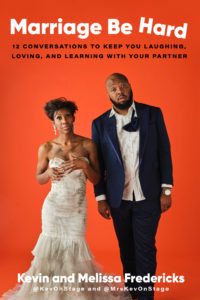




 With his signature “clear and courageous” (Cornel West) voice Marc Lamont Hill and New York Times bestselling author Todd Brewster weave four recent pivotal moments in America’s racial divide into their disturbing historical context—starting with the killing of George Floyd—Seen and Unseen reveals the connections between our current news headlines and social media feeds and the country’s long struggle against racism.
With his signature “clear and courageous” (Cornel West) voice Marc Lamont Hill and New York Times bestselling author Todd Brewster weave four recent pivotal moments in America’s racial divide into their disturbing historical context—starting with the killing of George Floyd—Seen and Unseen reveals the connections between our current news headlines and social media feeds and the country’s long struggle against racism.


 It used to be that you had to be stuck in bumper-to-bumper traffic to be exposed to sarcastic, misleading, and — fine, I’ll admit it — occasionally entertaining slogans about politics and spirituality.
It used to be that you had to be stuck in bumper-to-bumper traffic to be exposed to sarcastic, misleading, and — fine, I’ll admit it — occasionally entertaining slogans about politics and spirituality.

